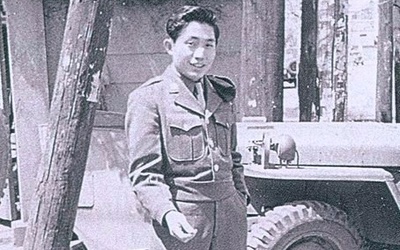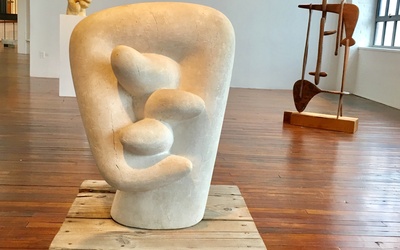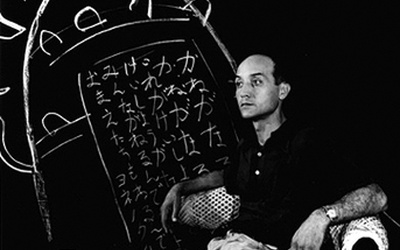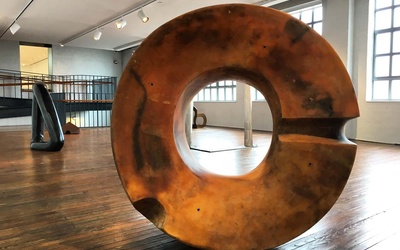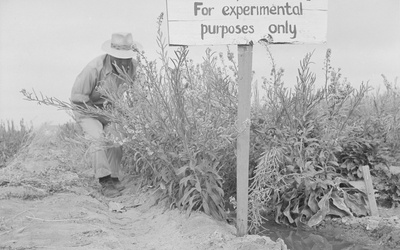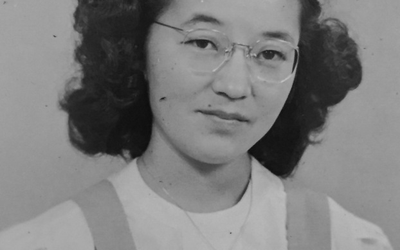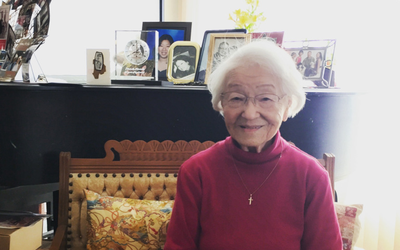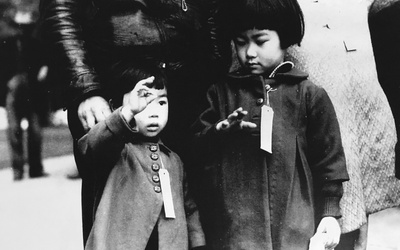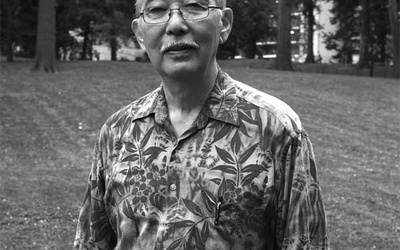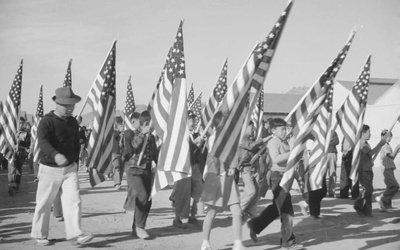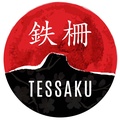
Emiko Tsuchida
@emikotsuchidaEmiko Tsuchida is freelance writer and digital marketer living in San Francisco. She has written on the representations of mixed race Asian American women and conducted interviews with some of the top Asian American women chefs. Her work has appeared in the Village Voice, the Center for Asian American Media, and the forthcoming Beiging of America series. She is the creator of Tessaku, a project that collects stories from Japanese Americans who experienced the concentration camps.
Updated December 2016
Stories from This Author
Kazuo Yamaguchi
Oct. 13, 2017 • Emiko Tsuchida
Luckily for us growing up in New York City, there was very little discrimination. And my dad became friends with the top godfather of the Italian mafia. I must’ve thought I was part Italian. — Kazuo Yamaguchi To hear Kaz Yamaguchi speak is to hear the voice of a born and bred New Yorker, complete with the “go to hell” attitude. At 92 years old and still living on the East Coast, Kaz calls himself an oddity, one of the …
Isamu Noguchi - Part 3
Sept. 27, 2017 • Emiko Tsuchida
Read Part 2 >> Did he choose Poston due to it being on an American Indian reservation? I think it happened to be under Collier’s jurisdiction and I think he had been through Arizona previously. I don’t think he had too much say. If he couldn’t get out, why was that? Because I think once you’re entered into the system, your file becomes part of the pile and it’s just the bureaucracy of the whole situation. And also, you’re immediately a suspicious …
Isamu Noguchi - Part 2
Sept. 20, 2017 • Emiko Tsuchida
Read Part 1 >> Do you also feel that something about Isamu Noguchi’s mixed-race identity shapes his sociopolitical worldview? I think the time that he spent in Indiana was really formative. This heartland experience, and he’s in the presence of this industrialist who has various farming equipment manufactured, he runs a newspaper so he sees this guy essentially as the personification of the American businessman. And also he’s learning about the founding fathers and he’s definitely aware of the farming cycle. And …
Isamu Noguchi - Part 1
Sept. 13, 2017 • Emiko Tsuchida
“I begin to see the peculiar tragedy of the Nisei as that of a generation of transition accepted neither by the Japanese nor by America. A middle people with no middle ground. His future looms uncertain. Where can he go? How will he live? Where will he be accepted?” — Isamu Noguchi from “I Become a Nisei” (1942) Sculptor Isamu Noguchi was as fluid a creator as he was in his racial identity. Born to Leonie Gilmour, a white American …
Alice Kanagaki
Sept. 1, 2017 • Emiko Tsuchida
“The Japanese people are not the kind of people to sit back and feel bitter and feel sorry for themselves. They are creative, resourceful and they make the best of a bad situation. Shikata ga nai.” — Alice Kanagaki Teenage fun, good friends, and happy memories of high school is how Alice remembers her time in Gila River. Skim through her high school yearbook and it reads like an average collection of young friends in any other school bonded by dances, …
Maru Hiratzka - Part 2
Aug. 22, 2017 • Emiko Tsuchida
Read Part 1 >> How did they (Hiratzka family) come back to California? Well, I was in Texas and Jordan went to Ogden. I went to Crystal City and joined my family. We were separated for two and a half years and in the meantime Jordan was in Japan with the MIS. Went to the Philippines and they closed up those bars. They stayed there very shortly in Manila then they were sent to Japan. The war ended when he was …
Maru Hiratzka - Part 1
Aug. 21, 2017 • Emiko Tsuchida
I know even in camp when it was declared Japan lost the war, some of these men were very adamant about Japan, they just couldn’t believe it. They went back to Japan thinking that they did not lose the war. But the Japanese, they’re just so strong. — Maru Hiratzka The story of Maru Hiratzka’s life during the war is really a love story. After family decisions took her and her high school sweetheart, Jordan Hiratzka, in opposite directions (she …
Kay Ikuma
July 27, 2017 • Emiko Tsuchida
One of the hardest things was getting immersed back into society, like taking the bus to school some place where there was a mixture of people. We had to put up with a lot of taunting, a lot of ridicule. That was hard, I remember that, being teased a lot. —Kay Ikuma In May of 1942, photographer Dorothea Lange shot the below picture of the Mochida family, prepared with their family’s identification tags and marked bags waiting to board a …
Tadashi Tsufura - Part 2
July 13, 2017 • Emiko Tsuchida
Read Part 1 >> Why do you think the parents and most Niseis never spoke about camp? When the war was going on we were the enemy. After the war, we were still the enemy, so dead silence continued until 1976 when Michi Weglyn published her book “Years of Infamy.” Until then, no one wanted to bring the camp subject up. Also, when we left camp for Seabrook Farms in September of 1944, the war was still going on and …
Tadashi Tsufura - Part 1
July 12, 2017 • Emiko Tsuchida
In the morning you take off, and you don’t come back or see your parents until you go to bed. You went whenever you wanted to. And you don’t tell anybody what you’re doing during the day. What a painful thing it was, and must have been, for the Issei group. — Tadashi Tsufura Growing up in a little farming town in California, Tadashi Tsufura likely never envisioned the influential life he would lead. After they left the internment, his …

